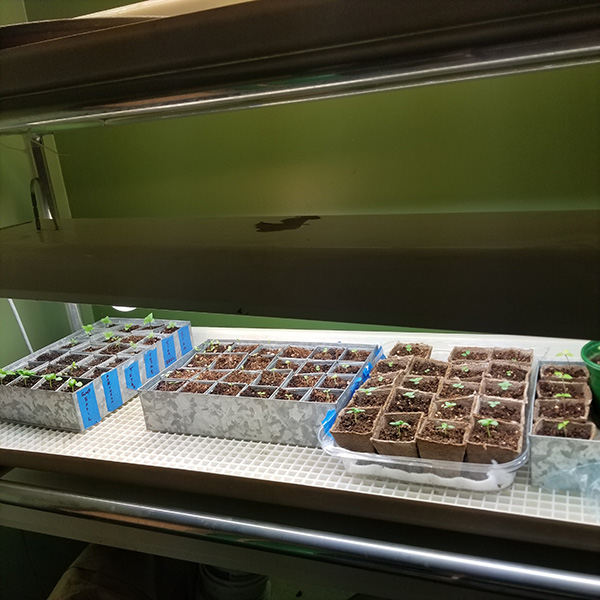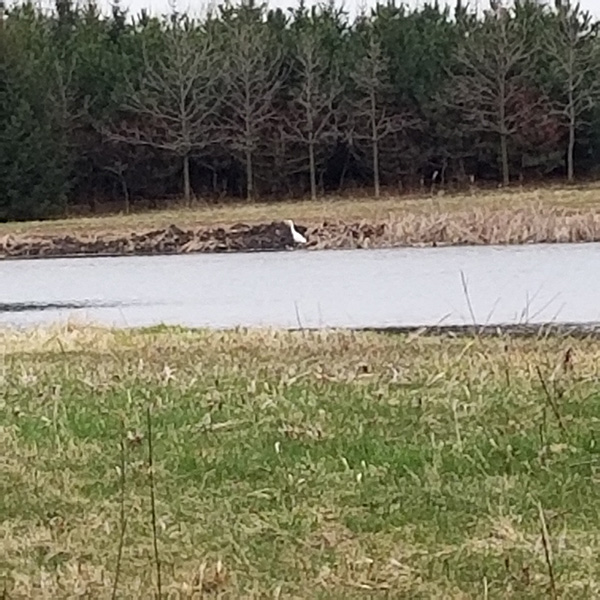Glimpses of Healing and Hope
by Beth Gerig
It’s been so nice to see and hear from so many in the congregation through Zoom on Sunday mornings. I am missing getting together with friends and family. As Easter weekend approaches it’s been a real temptation to find ways to “work” around the social distancing. Maybe if my family went to Robbin’s Lake and ate outside in the open air, we could be acting responsibly, right?
Kevin and I stood outside of our son Nate's house last Saturday and visited with his wife Brie and our grandkids while they stood on the front porch. Alinna, Brie's niece who we consider to be our granddaughter, was concerned that Grandma and Grandpa might be missing her too much. Their neighborhood association encouraged everyone to put teddy bears in the windows so that families taking walks could count them. Surprisingly, even the older children were engaged in the activity as they walked by!
On a more sobering note, telechaplaincy is something to get used to. The extreme vulnerability of high risk individuals hits home for me. One of the PTs on the high-risk COVID-19 unit was not intubated and, therefore, able to actually speak with me via phone even though they struggled to breathe. Their first emotionally-laden, breathy words as they choked up were, "I'm still alive --I'm still alive."
These are dramatic stories to hear but what about your experience in this time? I suspect that those who read this will either consciously or unconsciously use some form of the ages-old thinking pattern of using someone else’s tragic circumstances to put one’s own life “into perspective.” Some of this thinking finds merit in helping us to be grateful. I hear this all of the time and let me tell you, there are faulty internal responses to this thought pattern. “Someone’s got it worse than me” is often code for “I am making sure I am not pitying myself, and I am making sure that the person hearing it won’t think poorly of me.” Even more concerning is that the cavalier attitudes people adopt regarding their own experiences may skim over or even press down their senses of loss, grief, or fear. That’s avoiding pain -- not dealing with it! Sadly, spiritual and emotional growth or true resilience does not occur when this happens.
All of us are experiencing disorienting things to a greater or lesser degree. They have meaning, and they are significant even if they do not involve imminent personal threat to us and ours.
Richard Rohr's Daily Meditation for March 30 finds resonance in my personal and vocational understandings of the chaotic nature of upheaval, loss, and grief when the disruption of "Order" (which we somehow decided is God's understanding of goodness that is achieved by following rules and doing the right things) occurs. Rohr writes,
"All great spirituality is about what we do with our pain. Creation has a pattern of wisdom; and we dare not shield ourselves from it, or we literally will lose our soul. We can obey commandments, believe doctrines, and attend church services all our lives and still daily lose our souls if we run from the necessary cycle of loss and renewal. Death and resurrection are lived out at every level of the cosmos, but only one species thinks it can avoid it—the human species.
I am afraid that many of us with privilege have been able to become very naïve about pain and suffering in the United States and the Western world. We simply don’t have time for it. However, by trying to handle all suffering through willpower, denial, medication, or even therapy, we have forgotten something that should be obvious: we do not handle suffering; suffering handles us— in deep and mysterious ways that become the very matrix of life and especially new life. Only suffering and certain kinds of awe lead us into genuinely new experiences. All the rest is merely the confirmation of old experience."
In her book Listening for the Soul: Pastoral Care and Spiritual Direction, Jean Stairs invites Christians to understand the ways the cycle of loss and renewal in our everyday experiences and, in our states of upheaval, can be seen through the (Easter) lens of death and resurrection.
I wonder what goes through your minds at this time, and what emotions rise to the surface? Be with those thoughts and feelings. Examine them, hold them, and share them if you wish with a trusted person/group. Wallowing in them is not what I am encouraging here! Find a gracious understanding of your concerns not a dismissive one! Honesty with feelings is an act of bravery and a road to spiritual well-being and resilience.
On a brighter note, I have taken a picture of the seedlings growing in my basement. We saw the snowy egret that comes to our pond once or twice a year on its way to wherever it goes. The cardinal is back that tries every year to go through my dining room window. Spring is a time we are reminded of hope, resurrection, and RESILIENCE!


Totally off topic here, but if you are able, watch the Netflix docuseries Chef's Table. It's definitely not just for foodies. The stories are hopeful, poignant, masterfully presented, and touch on themes of social justice, immigration, and earth care. This documentary would make great Zoom conversation if you are lucky enough to enjoy dinner table conversation at this time.
To my community of faith, I wish you resurrection and resilience.